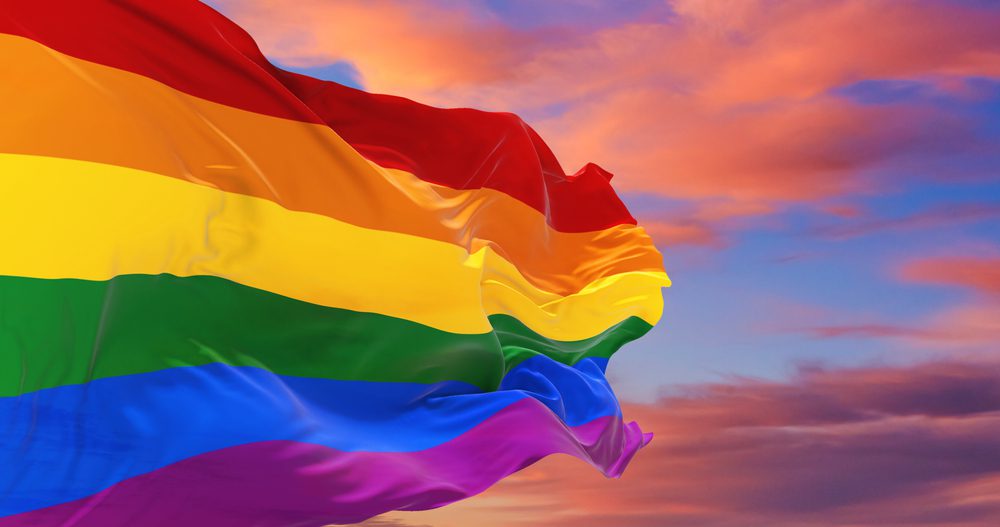Advertiser Disclosure: Many of the companies featured here provide compensation to us. This is how we maintain our free service for consumers. Compensation, along with hours of in-depth editorial research, determines where & how companies appear below.
Being gay individuals, John Schneider and David Auten of Denver-based financial planning know the importance of being financially stable. After dating for a year and a half, they decided to open up about their credit card debt totaling $51,000. As professionals in the finance industry, they were well aware of money management but realized that their “financial troubles had roots in being LGBT.” With this newfound understanding, they were able to work together and get their finances back on track.
LGBT stands for lesbian, gay, bisexual, and transgender. This acronym often encompasses queer, intersex, and asexual identities. These letters generally represent anyone who identifies outside of traditional definitions of sexuality and gender. Unfortunately, this can often lead to financial difficulties.
It wasn’t always easy being gay, but Schneider and his partner found strength in each other. They both came from a time and place where it wasn’t OK to be gay. They lived some of their formative years in the closet, and there were times when they were bullied and picked on.

According to a 2016-2017 financial services firm Prudential report, 48 percent of LGBT survey respondents consider themselves spenders, compared with just 32 percent of the general population. Also, 4 out of 5 LGBT households reported that high debt levels make managing household finances difficult, according to a 2017 survey from MassMutual.
This indicates that the LGBT community is more likely to overspend and accrue debt than the general population. This can make day-to-day financial management difficult for many queer households.
It is no secret that the LGBT community often faces discrimination and exclusion in many parts, which can make finding an affirming and welcoming place to live quite tricky—and expensive. For example, Manhattan and San Francisco are well known for being both LGBT-friendly and budget-unfriendly. According to research firm Sperling’s Best Places, living costs in the respective areas are 195 percent and 118 percent above the national average. On the other hand, the states with the lowest living costs – West Virginia and Arkansas at 17 percent below the national average and Oklahoma at 16 percent below average – are also among the 20 states that do not have hate crime laws explicitly protecting LGBT people.
So, it is clear that for many members of the LGBT community, finding an affordable place to live becomes another barrier they must face.
Auten explains that, without protection from discrimination, many people are forced to keep their true identities and relationships hidden. This makes it difficult for them to find love and happiness and can lead to feelings of isolation and loneliness.

Transgender people often live in poverty and face job insecurity, according to a new study. The study by the University of Washington found that transgender people are more likely to have household incomes of $12,000 or less. In fact, according to the most recent U.S. Transgender survey, 29 percent of respondents live in poverty, compared with just 12 percent of the general population. “They don’t want to put themselves in positions of risk or seek out situations that might turn out to be threatening,” says lead author Dr. Aaron Hirsch. “They almost live behind closed doors.”
Lesbian households can face unique financial challenges. On average, women earn less than men, and women of color often earn the least among all groups. This can make it difficult for two women of color to make ends meet.
Saving money and having financial independence are especially important to members of the LGBT community. Auten and Schneider could pay off their $51,000 credit card debt in two-and-a-half years by identifying what was most important to them and making that their focus. “We realized that going out clubbing and to fancy dinners wasn’t what we wanted,” Schneider says. “What we wanted was to travel, be together and retire independently. Once we could focus on our main goals, it motivated us to pay off our debt, and that’s kept us out of debt since.”
As we age, we must consider our long-term financial security. For many in the LGBT community, this can be incredibly challenging. After all, many LGBT people have had to focus on simply surviving in the present. But as we age, longevity risk becomes a significant concern for everyone – gay or straight, cisgender or transgender. LGBT people often need to save even more money to afford their longer lives.

According to David Rae, a financial planner based in Los Angeles, our community faces discrimination in retirement. He says that people in our position are likely to have a more expensive retirement and have to pay for more care than others like us.
Estate planning can be complex for everyone, but there may be additional considerations for members of the LGBT community who are unmarried. “Even though same-sex couples may have the support of their families concerning their relationship, different issues can arise when there are assets involved,” says Natalie Colley, an analyst at financial planning firm Francis Financial in New York. She recommends that everyone, regardless of marital status or sexual orientation, take a close look at their financial situation and plan accordingly.
It is important for same-sex couples planning their estate to consult with an experienced attorney. This will protect their beneficiaries and ensure that their wishes are carried out. One way of doing this is by placing assets in a trust, which can be passed on to a partner or other chosen beneficiary. This can be advantageous as it keeps the assets private and reduces the risk of family members feeling entitled to a share.
As an LGBTQ individual, finding a financial advisor you can trust with your money and identity can be difficult. However, it is essential to have someone who understands your unique circumstances and can help you plan for your future.
Rae Summerford, a financial advisor with over 20 years of experience, knows this firsthand. “I’ve spoken to numerous people over the years who were too scared to come out to their financial advisor,” Rae says. “By being out and visible, I hope to help other financial professionals be out and visible. The more of us there are helping the LGBT community, the easier it will be for people to know that gay financial advice is available.”
No matter your gender identity or sexual orientation, taking control of your finances is empowering. Celebrate your financial well-being throughout the year, and take pride in your finances and who you are.




